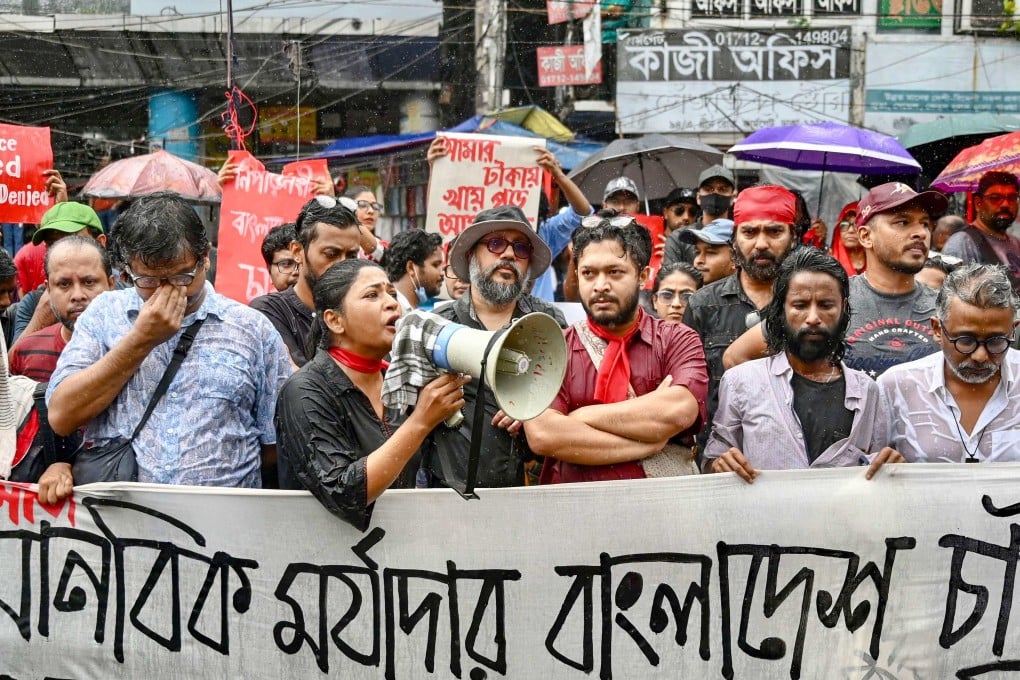Bangladesh student protests become ‘people’s uprising’ after brutal government crackdown
- Protests over job quotas have turned into a broader movement challenging Prime Minister Sheikh Hasina’s government

Bangladesh has experienced unrest for almost a month following a mass student movement demanding the abolition of the job quota system. This escalated into violent clashes that have seen police, army, paramilitary forces and pro-government groups attacking the protesters.
Protesting students are now demanding the release of all detained students, the removal of senior ministers in charge of security and law from the cabinet, and the prosecution of security personnel involved in the killings on murder charges. Despite this, authorities have continued their crackdown, arresting thousands of students nationwide.
University teachers, parents, popular artists, lawyers, and other citizens are joining the protest, shaping it into a people’s movement against Prime Minister Sheikh Hasina’s regime.

In office since 2009, Hasina has been accused of authoritarianism and corruption. Allegations of vote rigging have marred the last three general elections, with the opposition and international observers citing widespread irregularities. Rights groups also accuse her of misusing state machinery to maintain power, stifle dissent, and kill opposition activists extrajudicially.
